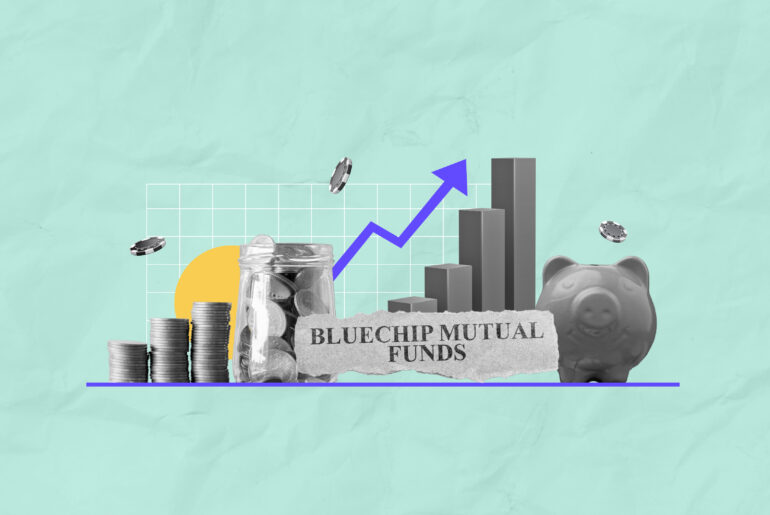Last Updated on Jul 7, 2025 by Anjali Chourasiya
Mutual funds are highly liquid investments, which means an investor can choose to redeem – partly or fully – at their convenience. The only exception to this rule is the Equity Linked Saving Scheme or the ELSS fund, which has a lock-in period of three years before redemption.
Redemption, in layman language, is nothing but selling off your mutual fund investment. It is also referred to as exit from the scheme, and such an exit can be partial or complete depending on your preference.
This article covers:
- Why do investors sell mutual funds?
- How to sell mutual funds?
- What is exit load?
- Tax implications when selling mutual funds
- Do’s and don’ts when selling mutual funds
Table of Contents
Why do Investors Sell Mutual Funds?
There are various reasons why you might want to redeem or sell your mutual fund investment. Some of these include the following:
- If you need funds to meet your financial obligations
- If you are not satisfied with the returns offered by your scheme and you find other similar schemes offering better returns, you can switch to another scheme. Switching is, in effect, selling one fund and buying another
- If your investment strategy or mutual fund exit strategy has changed and you no longer wish to remain invested in the existing scheme
- If your risk profile has changed and you want to change your investments too
- If the market is in a downturn and you wish to protect your returns from erosion, you can sell off or switch your investment
How to Sell Mutual Funds?
Selling mutual funds is easy and quick. You can either opt for the online or offline mode to wholly or partly sell your mutual funds. Let’s have a look at both these modes:
The offline mode of selling mutual funds
Under the offline mode, you can either sell your mutual fund through a broker/distributor or directly approach the Asset Management Company (AMC). You would have to fill up a redemption request form stating the units to be redeemed and the details of your mutual fund scheme. Submit the form which the AMC would process. After the form is processed, redemption would be complete, and the AMC would transfer the redemption amount to your bank account. You can also request a cheque which would be mailed to your registered address.
Online mutual fund selling
This mode allows you to sell mutual funds online easily. The different ways in which you can sell or redeem mutual funds online are as follows:
- Through the website or mobile app of the AMC
- Through the website or mobile app of the Registrar and Transfer Agent (R & T Agent) through which you invested in the scheme
- Through the website of an online broker from whom you invested in the scheme
- Through your Demat or trading account, if you bought your mutual funds using the same
What is Exit Load?
In some cases, you might face an exit load when you sell mutual funds. Exit load is a charge levied on the redemption proceeds if you exit from the scheme within a specified time. This load would be deducted from the amount payable, and then the net amount would be credited to you.
For example, if a mutual fund scheme has an exit load of 1% on redeeming within a year and you exit the scheme before a year expires, the load would be applicable. In such cases, if, on selling the mutual fund, you have earned Rs 1 lakh, the net proceeds payable after the application of exit load would be Rs 99,000.
Tax Implications When Selling Mutual Funds
When selling a mutual fund scheme, you need to be aware of the possible tax implications that you might face. The tax implication depends on the type of scheme that you are redeeming and is applicable as follows:
- If you redeem equity mutual funds within 12 mth of investing, the returns earned would be short-term capital gains. Such gains would be taxed at 15% However, if you sell the fund after 12 mth, the gains would be called long-term capital gains. Such returns, up to Rs 1 lakh, would be tax-free. However, excess returns would be taxed at 10%
- If you sell debt mutual funds within 36 mth, you earn short-term capital gains Such gains are taxed at your slab rates. Mutual fund redemption after 36 mth is called long-term capital gains. Such gains are taxed at 20% with indexation benefits
Do’s and Don’ts When Selling Mutual Funds
While you can sell mutual fund units for your financial and strategic needs, here are some do’s and don’ts to keep in mind when going for a full redemption of mutual funds or partial redemption of mutual funds:
- If the market is falling, don’t be in a hurry to redeem. Mutual funds are suitable long-term investments. If you stay invested, the market volatility will stabilize, and your investment would give you good returns
- Do check the mutual fund exit load, if any. If you can, try and hold onto the scheme to avoid the mutual fund exit charges as it reduces your profits
- Do keep the tax implication in mind when redeeming
- Avoid selling during the lock-in period
Know how to sell mutual funds with exit loads or without and then choose the most suitable mode of selling. Understand the tax implications of the sale and disclose your returns when filing your income tax returns. Sell funds to meet your financial needs or to suit your changing investment strategies but don’t give up on your investment entirely. Invest in other schemes to diversify your portfolio and to create funds for your financial needs.
- How To Declare Mutual Funds in ITR & Disclose Capital Gains in India? - Jun 6, 2025
- How To Sell or Exit Your Mutual Funds in India? - Jun 6, 2025
- Fund of Funds (FOF): Meaning, Types & Advantages - May 13, 2025





